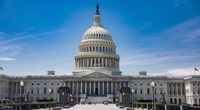On March 27, 2025, significant developments unfolded in the international landscape as both the Dutch and Canadian governments responded to shifting dynamics in their relationships with the United States. In a parliamentary debate, Dutch Minister of Defense Ruben Brekelmans emphasized the necessity for Europe to prepare for a gradual U.S. withdrawal from the continent, while Canadian Prime Minister Mark Carney declared an end to the era of deep ties with the U.S. following President Donald Trump’s announcement of substantial auto tariffs.
Brekelmans stated that Europe and the U.S. must collaboratively create a "road map" detailing the transition of responsibilities as the U.S. pivots its focus more toward Asia. "Let us shape the transition together with the United States and not panic," he urged during the debate. The minister noted that the U.S. withdrawal would not happen suddenly, indicating that it is crucial for Europe to understand what functions the U.S. will reduce in the short term and what Europe will need to take over.
"We should not be moving faster than the Americans themselves on this," Brekelmans added. He highlighted the need for a comprehensive document outlining the transition, which would take years to develop, as Europe currently lacks essential capabilities such as satellite communications, air transport, and intelligence.
Despite the tensions, Brekelmans reported a "constructive tone" from his American counterpart, Pete Hegseth, assuring that the U.S. administration remains committed to NATO. However, relations between the U.S. and Europe have soured since the start of 2025, following Trump’s election. Calls for Europe to reduce its dependency on the U.S. have intensified, with the European Commission advocating for an investment of 800 billion euros into defense departments across Europe.
Former Dutch Defense Minister Joris Voorhoeve has proposed the establishment of a confederation of countries aimed at enhancing Europe’s security independently of the U.S. In an opinion piece, he argued that European nations cannot rely on the U.S. in the current climate. "Many European countries want to work together to form a counterweight against aggression from Russia," Voorhoeve suggested, proposing a confederation that could include Canada, Norway, and Turkey, emphasizing a collective defense strategy.
Meanwhile, in Canada, Prime Minister Mark Carney’s response to U.S. auto tariffs has marked a pivotal shift in the country's foreign policy. Following Trump’s announcement of a 25 percent tariff on all auto imports, which is set to take effect next week, Carney declared that the era of deep economic and military ties with the U.S. "is over." This move could have devastating effects on Canada’s auto industry, which supports approximately 500,000 jobs.
Carney, who took office on March 14, 2025, paused his campaign ahead of the April 28 federal election to address the trade war with the U.S. He described Trump’s tariffs as "unjustified" and a breach of existing trade agreements. "Our response to these latest tariffs is to fight, is to protect, is to build," Carney stated, signaling Canada’s intent to retaliate with its own trade actions that would minimize impacts domestically while maximizing effects in the U.S.
Despite the escalating tensions, Carney has yet to speak with Trump since taking office. However, he confirmed that the White House has reached out to schedule a call, which he expects to happen within a few days. Carney has made it clear that he is open to discussions but will not engage in substantive negotiations until the U.S. shows Canada the respect it deserves, particularly regarding sovereignty issues.
"For me, there are two conditions... respect for our sovereignty as a country... apparently it's a lot for him," Carney remarked, emphasizing the need for comprehensive discussions on economic and security matters between the two nations.
The contrasting responses from the Dutch and Canadian governments illustrate a broader trend of reevaluation in transatlantic relationships. As Europe and Canada grapple with the implications of a shifting U.S. foreign policy, the call for increased autonomy and self-reliance in defense and trade matters is becoming more pronounced.
In conclusion, as Europe seeks to navigate its security landscape amid a potential U.S. withdrawal and Canada braces for the economic impacts of new tariffs, both nations are at a crossroads. The need for strategic planning and cooperation among allies is more critical than ever, as they strive to maintain stability and security in a rapidly changing geopolitical environment.




